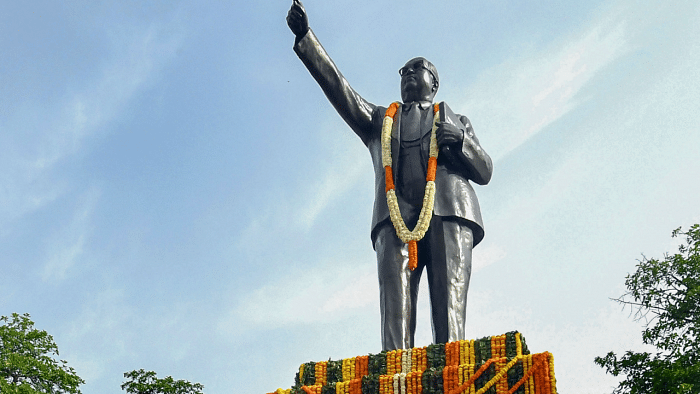
A 21-year-old Dalit youngster was beaten for wearing good clothes and sunglasses in the Banaskantha district of Gujarat in May. A Dalit man was killed by an upper-caste hotel manager following an argument over a food order in the Mahisagar district of the state in June. A group of upper-caste men killed two Dalit brothers over a property dispute in the Surendranagar district in July.
The crimes against Dalits in Gujarat are rather routine and rarely make noise. But the killing of the two brothers in Surendranagar triggered a protest, which prompted the state’s BJP government to suspend a sub-inspector, constitute a special investigation team (SIT) for a quick probe, set up a fast-track court for speedy trial and appoint a special public prosecutor.
But as the agitators were pacified and the political leaders did their bidding by voicing concerns, the Dalit activists fear that the case would just remain as yet another entry in the long list of atrocities against the scheduled caste communities in the state.
At 5.8 per cent, the conviction rate in the cases of crimes against Dalits in Gujarat is one of the lowest in the country, according to the National Crime Record Bureau (NCRB) report of 2021. The accused often go unpunished and the law of the land fails to act as a deterrent.
Also Read: BJP govt has no interest in ending untouchability, discrimination in Gujarat: Jignesh Mevani
The activists blame the low conviction rate on the reluctance of the government to set up special courts for a speedy trial, shoddy police investigation and compromises by victims fearing backlash from upper caste accused.
When the four Dalit youths had been flogged by a group of vigilantes at Una in the Saurashtra region of Gujarat in July 2016, it had shocked many across the country. The protests had forced the government to appoint a special public prosecutor and to set up a special court would to expeditiously bring the accused to justice.
Seven years have passed since then but the trial is far from being over, with about 200 witnesses being examined till the middle of this week. “The trial may go on for another six months. Gussa toh itna hai ki mann karta hai Phoolan Devi ya Udham Singh ban jaon…(I sometimes get so angry that I think I should become another Phoolan Devi (bandit-turned-politician) or Udham Singh (legendary freedom fighter),” Vasram Sarvaiya, one of the victims, told DH.
One of the main reasons behind the continuation of such atrocities is said to be the low rate of conviction of the accused. “It simply means that the laws to protect them don't work as deterrence as envisaged by the policymakers. The Una case is a classic example of how a delayed trial leads to not only injustice but also encourages others to commit similar crimes,” said a former IPS officer, who retired as the Director General of Police of the state.
The activists providing legal assistance to the victims say that the acquittals in cases of verbal abuse also contribute to the low conviction rate in the cases of crimes against Dalits. They say that the conviction rate is slightly better in the case of murder and other serious offences.
“The reason behind the low conviction rate is mostly due to poor police investigation and witnesses turning hostile for various reasons. Besides, a vast majority of cases are related to hurling casteist slurs, which are quite difficult to prove in courts,” said Prita Jha, an activist who runs Peace and Equality Cell, which provides legal assistance to victims of atrocities against Dalits.
A group of upper caste men in Vadodara this week refused to allow the funeral of the body of a Dalit man in the common crematorium of the village.
A cursory glance at the long list of crimes against the Dalits in Gujarat reveals that a man from the community in the land of Mahatma Gandhi may find himself at the receiving end of the upper caste men’s wrath even if he sports a long moustache, wears sunglasses or headgear or just adds ‘Sinh’ to his name on his social media profile.